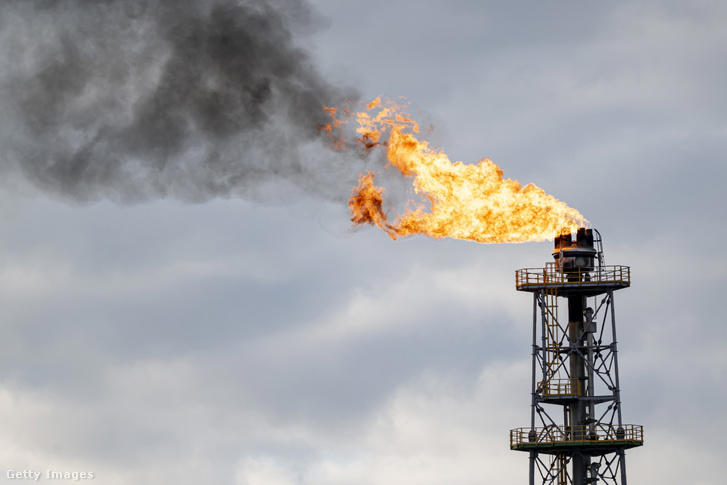
While degrees and diplomas aren’t everything, formal education is a “crucial knowledge base” without which, “everything will collapse, as everything in fact did”, Mario Thomas Vassallo, head of Department of Policy, Politics and Governance in the Faculty of Economics, Management and Accountancy at the University of Malta, said.
In an interview with The Malta Independent on Sunday, Vassallo was asked about comments made by Tourism Minister Clayton Bartolo after the latter was found to have breached ethical standards by giving a consultancy job to his girlfriend, now wife, Amanda Muscat, without her having the necessary qualifications.
A Standards Commissioner report found that two ministers, Clayton Bartolo and Clint Camilleri, had abused their power when Muscat was first employed as a consultant with the Tourism Ministry and later moved to the Gozo Ministry, netting a pay packet of €68,000. When asked about this by the media, Bartolo replied that “degrees and diplomas” are not everything.
“This was an abuse,” Vassallo said. “And I think I can speak more vocally than other people since Muscat was employed as a policy expert, according to the media, and we are (holding this interview) in the Department of Policy, Politics and Governance,” he said, stressing that Muscat should have understood politics and policy-matters to be fit for her role.
Bartolo defended himself saying that, “in life, everything isn’t about diplomas and degrees. In life you have those who are capable also because of experience”. Vassallo, to an extent, expressed agreement with the minister: “Degrees and diplomas aren’t everything, I agree with the minister there, you also need charisma, experience, etc. but qualifications should be the foundation. If you lack this crucial knowledge base, everything will collapse, as everything in fact did.”
“This is a clear, textbook example of nepotism by which someone is not appointed on their merits or experience but purely based on connections.” He clarified that “this doesn’t mean that someone who is related to someone in power cannot be appointed to a position of consultancy or work-related to the executive, since a person can be competent (enough for that role). But I personally would still have difficulty hiring a relative to work in the office with me”.
On one hand, Vassallo noted that “in family businesses, that make up a great segment of SMEs in Malta, it is your surname which determines if you are on the board or not”. The difference is that in such cases, “private funds are used; in this (Bartolo-Camilleri) scandal public funds were used”. He also noted that “such textbook cases of nepotism have a greater incidence in smaller countries, like Malta, due to the small population which has more people knowing each other and maintaining close-knit relationships”.
“There’s idealpolitik and realpolitik,” he said, going on to explain that currently, the newly-elected Trump administration is setting up shop in the White House and it too is appointing what the Maltese call, “persons of trust”. He added that this “changing of the guard” includes people in the diplomatic corps. “In fact, we’re expecting the US ambassador to Malta to be changed in order to represent the Trump administration’s ideals as well as those of the United States. So, I understand that you need to work with people you have faith in, particularly when it comes to foreign policy.”
“If the PN is stressing good governance so much, it needs to keep in mind that if it points one finger, it can get a number pointing back.” He went on to stress that the PN in Opposition “does not have the best track record”, illustrating his point with the party’s delays to submit its audited accounts.
Vassallo went on to slam the PN for its hypocrisy. “It was so vocal against Chief Justice emeritus Joseph Azzopardi and even refused to vote for his appointment as the Standards Commissioner but now, because there are multiple ongoing cases which suit them, they put him at the forefront of their campaigns.” Ultimately, he said, “the PN is only seeing to the end of its nose.”
Vassallo believes that the effect of the Bartolo-Camilleri scandal on the Labour Party appears to be more serious. “I think that the government, or rather its ministers, and their activists are divided. They are frustrated in being continuously being forced to defend the indefensible. There is a serious lack of good governance in the Labour Party.”
To drive this message home, he made reference to the Minister for Social Policy Michael Falzon’s recent comments. Falzon had stepped down from his position as Lands Junior Minister after the Auditor General found irregularities in 2016, and pressed for comment on the matter by journalists on 19 November, Falzon said: “[My resignation] was my decision. That’s Michael Falzon, and if people don’t like that, everyone is free to judge… [when asked about the resignations of Camilleri and Bartolo] It’s not about what I think.”
Vassallo also noted that the effect of this scandal trickled down to constituents too, saying, “Public perception is highly negative currently. I met people from both camps and none of them sympathise with the ministers.” He added that it is the PN’s job to “rub salt in the wound” and keep up the pressure “as it should”.
Vassallo disagreed that the Bartolo-Camilleri case is different from that of Justyne Caruana. “It is not as the prime minister says. The case of Justyne Caruana is very similar: a partner was made a consultant without the slightest idea of what they should be doing.”
Back in 2021, then Standards Commissioner, George Hyzler, ruled that a violation of the code of ethics had been committed by Caruana in her awarding of a €15,000 contract to Daniel Bogdanovic, with whom she held a close “friendship”. Bogdanovic was “neither qualified nor competent enough to carry out (this task)”, the report found. As a result, Caruana had tendered her resignation from her post as Minister for Education, which was subsequently accepted by the prime minister.
The prime minister had defended himself saying that he had personally sacked Amanda Muscat (Bartolo’s wife). “But he never said that the taxpayer funds were returned,” Vassallo said.
The case of Central Bank Governor Edward Scicluna also comes to mind. Vassallo said: “The sense of shame is gone.” He added that though Abela defended Scicluna’s suspension and continued pay with the principle of innocent until proven guilty, he noted that the reasoning was one-sided. “Did Abela say that if Scicluna is found guilty he will be forced to return all that he was paid? If that has not been said yet, then it is us who must say it.”
Vassallo went on to quash claims of sexism on the prime minister’s part in the treatment of the different ministers. “What is right is right and what is wrong remains wrong, irrelevant of gender.”
The PN accuses the government of creating an atmosphere of impunity. “It is the wisdom of our elders, tested by time. This sense of injustice or ‘impunity’ always was and always will be present. It would be a golden opportunity for those in roles of leadership to finally say that all is not well. Rather, it would be condemnable if this opportunity is not taken. It all starts from the top.”
He summed up all his reasoning from his Catholic upbringing. “When I was a boy, in catechism they used to teach me that one must repent for one’s actions but also make up for one’s transgressions and return what you stole. This principle still holds.”
With the government clapping back with its condemnation of PN MPs for their alleged failure to uphold their duties for their day jobs in the public service, Vassallo called for an end to the head-butting and said that both parties are guilty. “The government places certain MPs in executive positions such as chairmen while some in the PN don’t fulfil their duties in the public service.” For him, the way forward is clear. “We need to roll up our sleeves and reach a consensus on how Parliament should be run after 60 years of independence. This has already been said in public but there is no drive or will to solve this problem and sleeping dogs have been left to lie.”
“It is only by a reorganisation of the Parliament’s function and composition that these farces will cease,” he said. When asked for comment about the reforms in the pipeline on MPs’ duties, his response was tongue-in-cheek, “the metaphorical pipe seems longer than the Malta-Sicily interconnector”.












